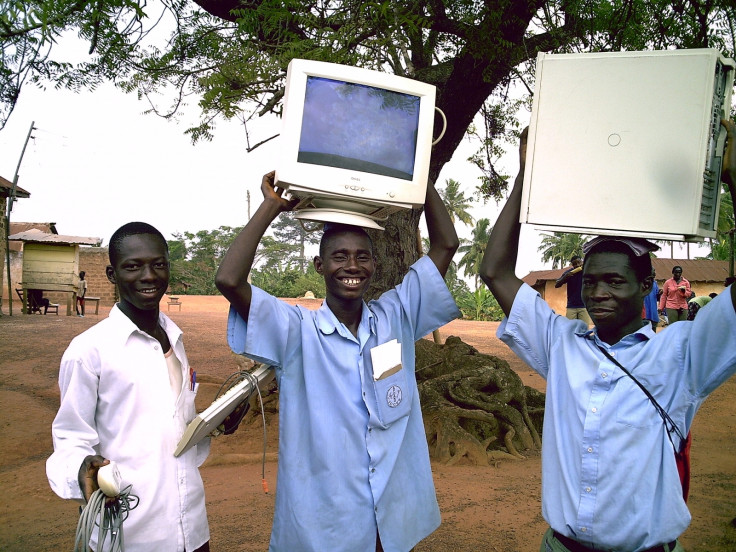Have an old PC to spare? Help Alan Turing's family bring computing to rural African schools
The Turing Trust is urgently seeking more partners to support its programmes in several African nations.

Do you have any old computers lying around that you don't need anymore, or any IT skills to spare? If so, Alan Turing's relatives need you.
The family of British computing pioneer and WWII code breaker Alan Turing are urgently seeking new partners to help them continue and expand their programmes to bring computing and IT education to rural schools and academic institutions in sub-Saharan Africa.
The Turing Trust was set up by Turing's great nephew James Turing and other immediate family in 2009 with the goal of gathering unused PCs and repurposing them for rural communities.
"I was simply volunteering in a school in Ghana. They were trying to get hold of computers and they asked me for help. I went back to my old school in the UK for computer donations, and the school's IT manager told me that everyone in the IT industry would recognise my name, and from that day on I decided to harness the name to promote digital inclusion throughout the world," James Turing tells IBTimes UK.
Eight years on, and the Turing Trust has now provided computers and IT training to over 100 schools in Ghana, Kenya and Malawi, working together with the Integrated Community Centres for Employable Skills (ICCES) in Ghana, the Umbrella School and the Memusi Foundation in Kenya and the Centre for Youth and Development in Malawi.
"We started in the UK with private donations from schools. It started slowly, then we started reaching out to companies when we knew more about what we were doing," says Turing.
"We take computers, refurbish them, install software, get them to the schools and make sure they have the facilities to support the computers. Then after that we stay in touch in case they need help."
The Turing Trust has partnered with multiple companies and schools in the past, as well as the University of Edinburgh, and is currently working with IBM Research labs in Kenya and South Africa. IBM will be working with the charity to develop coding and IT programmes at schools in Kenya.
Help bridge the digital divide
The technology giant is also working with The Turing Trust to develop an app in Johannesburg to help citizens install solar technology based on the GPS location of their home, its position in relation to the sun and the amount of energy they require.
The charity is very grateful for the support they have received so far, but it urgently needs more partners as digital literacy is still alarmingly low in many African nations.
The Turing Trust has a goal to install computers in at least 40 schools in Malawi by the end of 2017, in order to be able to scale its work and roll out the programme to every region in the country. To this end, it is seeking support from medium-sized businesses that are able to donate up to 100 old computers at a time, when they refresh their PCs to newer versions.
"[For example],98% of Malawian schools don't have computers. One of our key aims is to increase that access so the overall educational impact can be felt. We want to build more corporate partnerships with partners who can provide funding support, computers and training," says Turing.
"If you can't access the digital world, you're missing out on all of the opportunities of the 21st century. To reach our goal to live in a world of equal opportunity, we need to scale our work so that everyone has an equal chance of participating in our digital world."
© Copyright IBTimes 2025. All rights reserved.






















